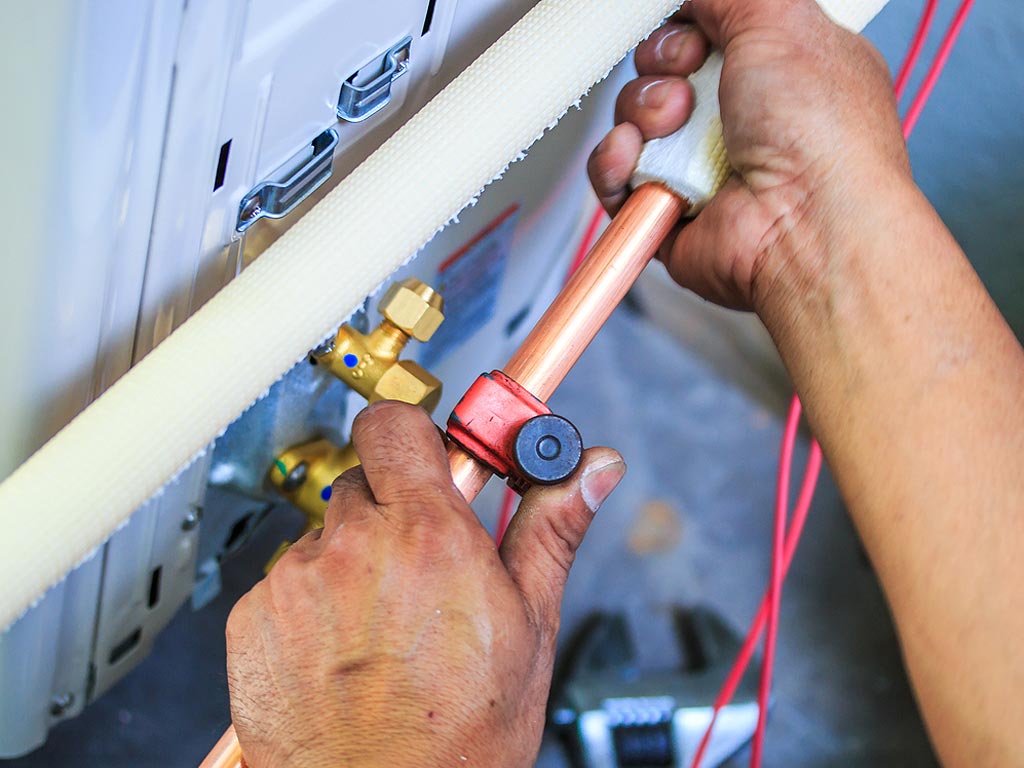Do you know the three most important signs your HVAC needs freon? Summer is only halfway over, and the heavy heat can get oppressive in New York. That means air conditioning problems skyrocket to the top of your to-do list, whether you have your own unit or your tenants are calling to complain. But getting to the bottom of different noises, unpredictable air cycle patterns, and other common symptoms of air conditioning problems can be tricky. It’s even worse if you’re getting secondhand reports and you don’t know which signs are serious. Here are three common signs that low freon is the problem with your air conditioner.

The unit is dripping near the coils.
Air conditioners have three basic sections. You have the outdoor condenser unit, the large box with the fan that pumps hot air out of your building. Then you have the second large box of your air conditioning system, which contains the main set of coils and is where you replace the air filter. The third part is the web of air ducts that distribute the air through the building.
If you hear dripping from the second portion of our air conditioning unit, low freon might be the cause. There are two things you should check for first, though:
- Make sure the condensate drain line isn’t clogged. Most units have a small bit of vertical PVC pipe sticking out of a bend in the pipe leaving the unit. Condensation that falls off the coils runs through this tube to the outside. But that moisture means the pipe can get clogged with algae or mold. If you hear a leak, clogs are a simpler problem to solve.
- If it’s not a clog, it might be a crack. The condensation running off your coils collects in a pan before it drains down the pipe. Eventually, that pan might rust and develop a crack. A quick visual inspection can get to the bottom of that.
If it’s not either of those issues, low freon is the likely answer. When there’s not enough freon in the refrigerant line, the pressure drops, and it gets too cold. That makes the coils frost over more than they should. Once they start to thaw, that excess moisture starts to drip.
There’s only lukewarm air coming from the vents.
When there’s not enough coolant in the system, it can’t cool down the air it’s pumping inside the building. Instead, it can only keep the air moving. There may be a bit of a temperature change, especially if the problem is just starting, but the air won’t be cold.
Even worse, the air conditioning system will keep trying to make the air cool down. The thermostat will keep registering that the building’s internal temperature isn’t what it should be, and it will keep starting new air cycles in an attempt to bring down the temperature. That extra work is hard on your air conditioner, and it will shorten the lifespan of the entire unit.
A cracked refrigerant line will hiss.
Refrigerant lines are a closed loop and the freon inside it is pressurized. If your freon is low because of a small crack or a hole in the refrigerant line, the freon will be pushed towards that gap at a relatively high force. It will give off a high, quiet whining sound, like a quiet version of a balloon that’s slowly losing air.
Unfortunately, this warning sign isn’t reliable. Unless the leak is near the outdoor unit or the interior unit, you probably won’t be able to hear it. You also shouldn’t go looking for it because freon is hazardous. Call in a technician instead.
If you have any of these three signs of low freon levels, contact Aladdin Plumbing today. We can also help with HVAC tune-ups and other malfunctions.
